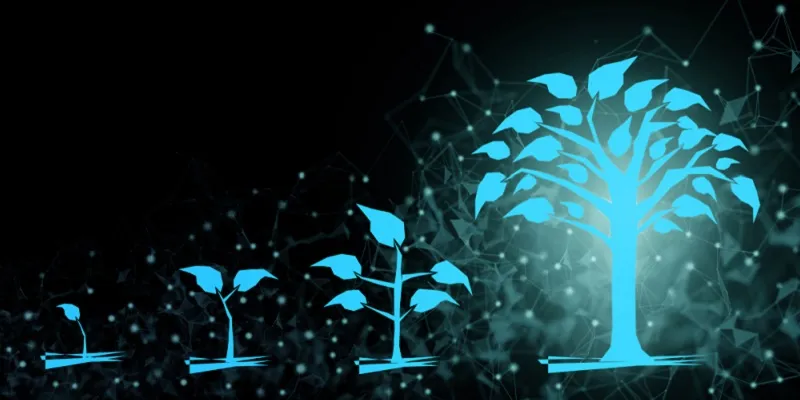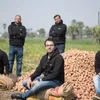[Funding alert] Precision agriculture startup Fasal raises $1.6M seed capital
The agritech startup has raised $1.6 million in seed funding, led by Omnivore and Wavemaker Partners. The funds will primarily be used to build its AI capabilities across its horticulture value chains.
Fasal, the AI-powered IoT-SaaS platform for horticulture, announced that it has raised $1.6 million in seed funding led by Omnivore Ventures and Wavemaker Partners.
The round also saw participation from Japan's Mistletoe (through their Gastrotope accelerator, Hong-Kong based Animoca), Mount Parker Ventures, AI-ML accelerator Zeroth, and Australia's Artesian Ventures. IC Universal Legal’s Chennai team, led by Sameena Chatrapathy, managed the transaction.
The funds will primarily be used to build the company's AI capabilities across its horticulture value chains. It will also be used to launch a low-cost, instantly installable version of the company's field sensor array.
The team is also looking to scale the business-to-business-to-farmer sales force, which partners with exporters, processors, and aggregators across horticulture value chains to access their networks of farmers.

Funding
Founded in 2018 by Ananda Prakash Verma and Shailendra Tiwari, the platform captures real-time data on crop growth conditions using on-farm sensors and delivers advisories to farmers in Indian languages with farm- and crop-specific actionables.
In a press statement from the company, Ananda, Co-founder and CEO of Fasal, said,
“We are on a mission to help horticulture farmers make data-driven, logical decisions and shift farming to autopilot mode. Farmers using Fasal are seeing major increases in profitability and huge water savings, even in the driest parts of Maharashtra. Ultimately, we will become a full-stack platform for horticulture farmers, and we are excited to partner with Omnivore and Wavemaker to help make that happen.”
The platform focusses on high-value, export-oriented horticulture crops that involve the farmers' focussing on maximising produce quality and reducing chemical residues. Some of the horticulture value chains where Fasal is currently working include grape, pomegranate, mango, citrus, tea, coffee, and chilli.
Mark Kahn, Managing Partner of Omnivore, said, “Ananda, Shailendra, and the team at Fasal are building a strong agritech startup aiming to reach the most progressive horticulture farmers in India and Southeast Asia. We plan to help Fasal accelerate the growth of their B2B2F business model by connecting them to leading agribusinesses across the region and on-boarding the farmers they source from.”
At present, the startup is present in Karnataka, Madhya Pradesh, Tamil Nadu, Andhra Pradesh, Chhattisgarh, and Maharastra. The team is planning to expand its presence pan India and is also looking at entry into select Southeast Asian markets.
Paul Santos, Managing Partner of Wavemaker Partners, said in a press statement,
“We are very excited to be investing in Ananda and Shailendra from Fasal as they build a world-class solution for two core problems for horticulture farmers: managing irrigation and diseases/pests. These problems plague Southeast Asian farmers just as much as they do in India, where the team has already seen early traction. We look forward to helping Fasal enter this region.”
According to the team at Fasal, the platform’s field sensor array can be installed by farmers in less than 15 minutes and it measures multiple dynamic variables, including micro-climate, soil, and crop conditions.
It uses machine learning (ML) to transform the field sensor data into farm-level predictions, which helps farmers anticipate various risks and reduce input costs by optimising crop protection, irrigation, and crop nutrition.
(Edited by Athirupa Geetha Manichandar)


![[Funding alert] Precision agriculture startup Fasal raises $1.6M seed capital](https://images.yourstory.com/cs/2/a9efa9c02dd911e9adc52d913c55075e/9MfundingFintech1572428497121jpg?mode=crop&crop=faces&ar=2%3A1&format=auto&w=1920&q=75)
![[Funding alert] Agritech startup Smart Farms raises undisclosed amount from angel investors](https://images.yourstory.com/cs/2/b87effd0-6a66-11e9-ad33-3f8a4777438f/shutterstock_131351456615591137758061563169366492.png?fm=png&auto=format&h=100&w=100&crop=entropy&fit=crop)




![[App Friday] Finch’s gamification of self-care is a hit and a miss](https://images.yourstory.com/cs/2/f49f80307d7911eaa66f3b309d9a28f5/Finch-1655391957378.png?mode=crop&crop=faces&ar=1%3A1&format=auto&w=1920&q=75)
